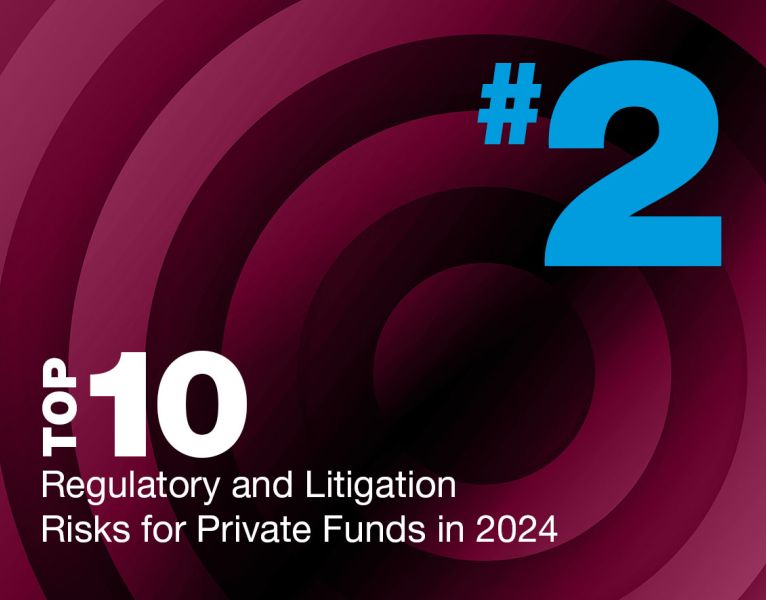ESG continues to be a hot topic for 2024 for investors and regulators alike. The specific concerns investors and regulators have – and what they expect to develop over the coming months – differ, however, across jurisdictions, including because of the different maturity of existing regulation between the EU/UK and the US.
ESG Concerns in the United States
In the United States, although the highly politicized term “ESG” is falling out of favor, the substance of ESG related concerns and disclosure obligations are alive and well. For one thing, companies should expect an overhaul of how they treat climate-related risks in their registration statements and periodic reports. On March 6, 2024, the SEC adopted new rules requiring companies to include certain climate-related disclosures in their annual reports and registration statements. These rules will require additional disclosure, including discussions of how climate-related risks may impact the registrant’s business, governance of such risks, targets and goals, greenhouse gas emissions, and financial statement metrics. After several legal challenges targeting these new rules, the Commission elected to stay the new rules pending judicial review. In addition to the SEC’s new rules, states have adopted additional climate change rules, most importantly California.
Private funds are not exempt from the recent wave of adopted and proposed rules either, as the SEC has proposed amendments to rules and disclosure forms for investment advisers and investment companies. The proposal would require funds that consider ESG factors in their investment process to disclose information regarding their strategy, with a concise overview in the offering documents, supplemented by more detailed information in other sections of the disclosure documents. Additionally, ESG-focused funds will be required to disclose information about greenhouse gas emissions associated with their investments. Funds that consider ESG factors alongside other factors will be required to disclose their methodology and data sources.
We can also expect increased regulatory enforcement action against firms related to the accuracy of their ESG-related disclosure. The SEC will likely become increasingly reliant on its Climate and ESG Task Force within the Division of Enforcement to identify disclosure-related misconduct.
ESG Concerns in the UK and EU
In the UK and EU, ESG concerns will take a different tack. With longer-established regimes on corporate-level responsibilities, reporting, and product categorization and labelling that apply to a wide range of companies and partnerships, we predict that the ESG focus within the UK (and the EU more generally) in 2024 will be on how the existing obligations affect the individual duties of company directors.
Under English law, directors – including investee appointed directors and non-executive directors – owe statutory and fiduciary duties to the company to promote its success for the benefit of the members as a whole, considering the long-term impact of the company’s operations on the community and the environment, and to exercise reasonable skill, care and diligence in their role.
For several years now, activist shareholders have sought to use these duties to force company boards to change approach and policy – for example to adopt more aggressive net-zero targets.
However, the increase in ESG-specific legislation gives broader scope for litigation—and as ESG becomes an ever more important aspect of corporate policy and governance, there is an ever-increasing regime of applicable national and transnational rules that require compliance and create litigation risk.
The most high-profile English ESG related shareholder claims to date: ClientEarth v Shell plc [2023] EWHC 1897 and McGaughey v Universities Superannuation Scheme Limited [2023] EWCA Civ 873 were each dismissed by the Courts, finding that the board actions and decisions complained of did not amount to a breach of duty. This accords with the long-term policy of English law, which affords directors wide discretion so long as they act rationally and in good faith.
However, we expect it will only be a matter of time before further cases are brought with claimants and litigation funders looking not just for profile raising cases but for clear merits. Likely claims we foresee include asserting breaches of duty by board directors, by way of derivative action, for ineffective implementation of a company’s public climate commitments made in its Sustainability Report. For example, we expect action under the new UK Sustainability Disclosure Requirements or the EU’s Sustainable Finance Disclosure Regulation, both of which stress the need in all ESG compliance not to just to say what you do, but to do what you say.
Directors of UK listed companies may also find themselves named in claims for misrepresentation or mis-selling under Financial Services and Markets Act 2000 (FSMA) relating to misleading descriptions of “green” products, or ineffective implementation of a product’s scope and exclusions.
From a regulatory enforcement perspective, all “statements, assertions, strategies, targets, policies, information and images” where a sustainability claim is made will be captured under the Financial Conduct Authority’s new anti-greenwashing rule, in force from May 31, 2024 and applicable to all UK authorized firms. This new regulatory rule undoubtedly increases the potential for ESG-related regulatory enforcement for the broad range of regulated firms it applies to and their senior managers.
While the US focus for now is on ESG specific disclosure and reporting rules, we anticipate a longer-term trend following that starting to be seen in the UK and EU where the duties of individuals – whether as board directors or regulated individuals such as senior managers – are evaluated through an ESG lens and in light of ESG specific laws and regulations.
Read more of our Top Ten Regulatory and Litigation Risks for Private Funds in 2024.




